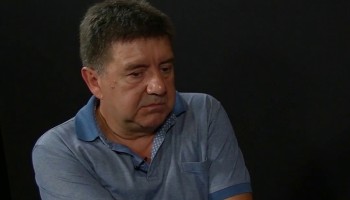"This is my goal, not just having one report after another and an avalanche of explanations of who did what and who is guilty of what. What matters here is to finish the reforms we committed to Brussels," Plevneliev told the press.
Among the controversial exchanges between the Bulgarian police and the judiciary is an accusation by the Bulgarian Interior Minister Tsvetan Tsvetanov regarding a kidnapping case. Tsvetanov criticized the Sofia City Court’s decision to transfer one of the kidnappers from prison to house arrest in an interview for Bulgarian National Television on Monday. Tsvetanov announced in July 2011 that the police will start naming their special operations after judges who have released detainees from arrest.
The kidnapper gang, dubbed “The Impudent,” is believed to be responsible for 13 high-profile kidnappings in Bulgaria between 2008 and 2009. In December 2009, 25 people believed to be members of this organized crime group were arrested following a police raid.
"If people planning to engage in such activity know what harsh penalties they will get, this will give a strong boost to the Interior's preventive function," Tsvetanov said.
In turn, the Union of Judges in Bulgaria criticized the Ministry of Interior for placing undue pressure on the judiciary. In an open letter of protest addressed to the Ministry of Interior, the Union condemned the practice of naming police operations after judges, saying that such a practice “grossly infringes upon the independence of the court and judges” and threatens to impede justice.
The Union of Judges used as an example a police operation conducted last Thursday against a group of extortionists, dubbed “RALICA” (pronounced “Ralitsa”), allegedly referring to the judge who presided over the kidnapping case, Ralica Manolova.
"The so-called RALICA operation gives a clear signal to Bulgarian judges that if they take a decision that the Ministry of Interior does not like, they will have to face a personal aggressive and manipulative attack," the Union’s letter said. According to the Thursday’s press release by the Ministry of Interior, RALICA stands for "Racketeering, Greed, Hypocrisy, Extortion, Cynicism and Anarchy."
The Union also said that house arrests are the responsibility of the police, and that the judiciary cannot be blamed if inmates escape.
At the press conference, president Plevneliev also praised the Bulgarian army for their successful implementation of European reforms.





